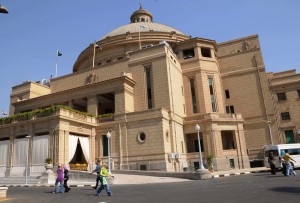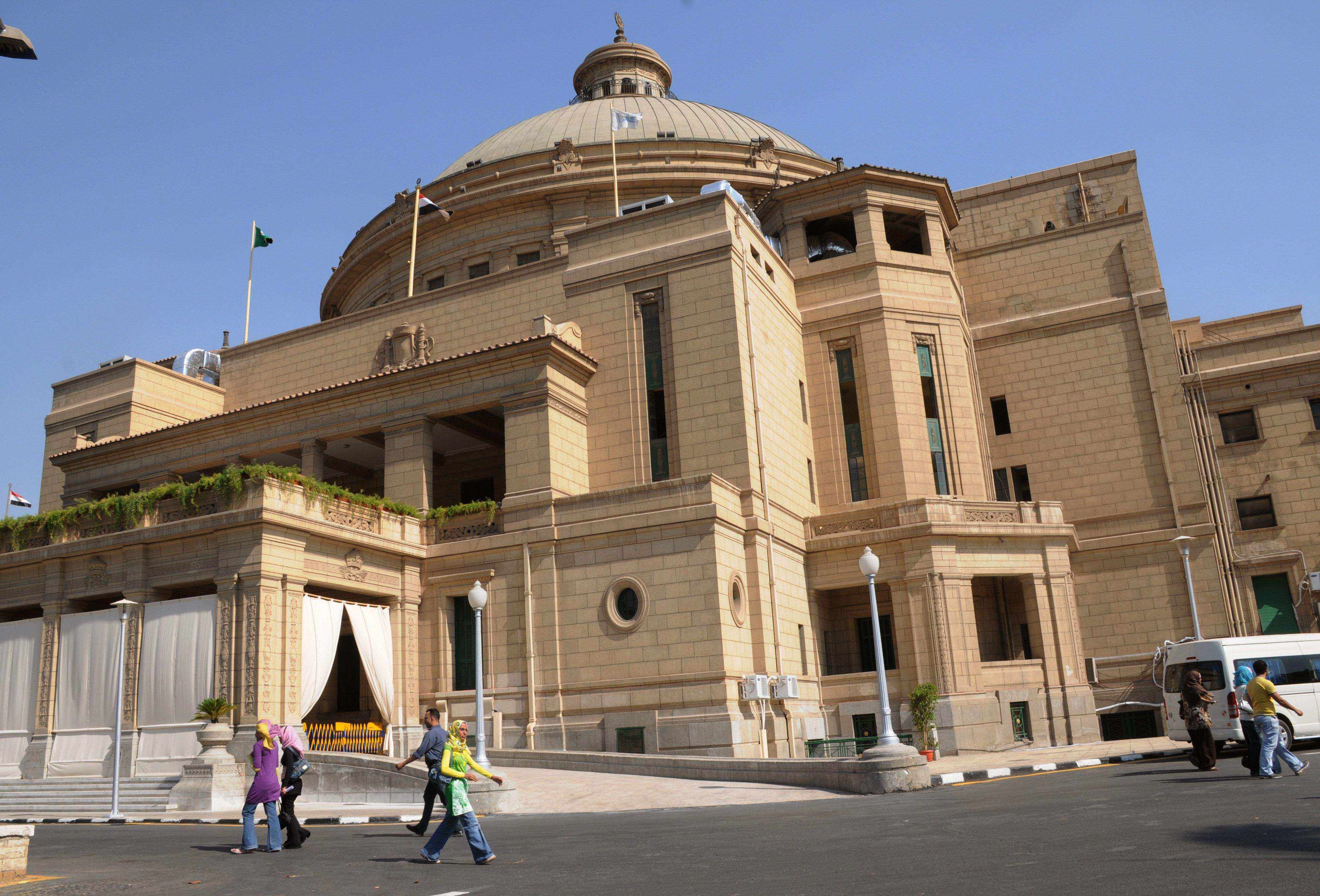
(AFP Photo)
The Democracy Index released a report on Monday stating that clashes have occurred in 24 universities, a number of schools and Al-Azhar institutions within 22 governorates.
Teachers and students have been arrested and interrogated since the beginning of this year’s educational term.
The report read: “146 protests were organized by university students from 24 universities around Egypt; 22 of [which are in] Cairo University and 13 occurred within Ain Shams University.”
Twelve protests were organized as a result of the hardships faced by first year students when enrolling or transferring at different universities.
A sit-in was called for on Friday by students of the Cairo University for those who have trouble with student housing.
The Democracy Index uses several indicators to measure how democratic a state is. The Index issues special reports regarding certain issues within different countries.
According to the report: “During the different clashes that occurred within the educational institutions since the start of this year’s educational term, eighteen teachers were investigated and ten students were arrested”.
The report described the protests as “traditional” where 88 of them were staged demonstrations, 62 protest stands and 44 marches, in addition to 11 human chains and 9 sit-ins.
Ahmad Ghoniem, spokesman for Students Against the Coup, claimed that clashes that occurred yesterday in Ain Shams University were due to the “university security opening the door to thugs, who used Molotov cocktails and melee weapons…this occurred in Zagazig University and Banha University, too.”
The Democracy Index report stated: “The interim government is witnessing several incidents in its first experience in management of a school year.”
“70 ambiguous resignations were presented from university teaching staff while no clear reasons were cited over why these resignations occurred from the Ministry for Higher Education, which raises doubts over the actual reasons behind these resignations,” added the report.
Five teachers were referred to investigation in Etsa Secondary School in Fayoum on Sunday after being accused of inciting protests within school while the Cairo University Student Union filed a complaint to the prosecutor general to release their arrested colleagues.
The Democracy Index expressed its worry regarding the negative impact the political power struggle will have on the educational environment, adding that “60% of the clashes were politically influenced.”
The Index report, compiled by the Economist Intelligence Unit, also stated: “precarious observations are represented in the politically influenced arrests of students due to their expression of anger or demand through signs or graffiti.”
“Eight university students and 2 school students were arrested … reflecting a policy by the Educational Institution that is far from granting freedom,” the report stated.
“The impromptu announcements of support from educational administrations for the current regime devastates the educational process,” the report added.
The national coalition for legitimacy released a statement, indicating that students will demonstrate within schools and universities this whole week, praising them for “disrupting the plans of the coup organizers.”
The coalition said that the students were not “tricked into ending their demonstrations,” and accused the regime of offering bribes of waiving school and university fees.
